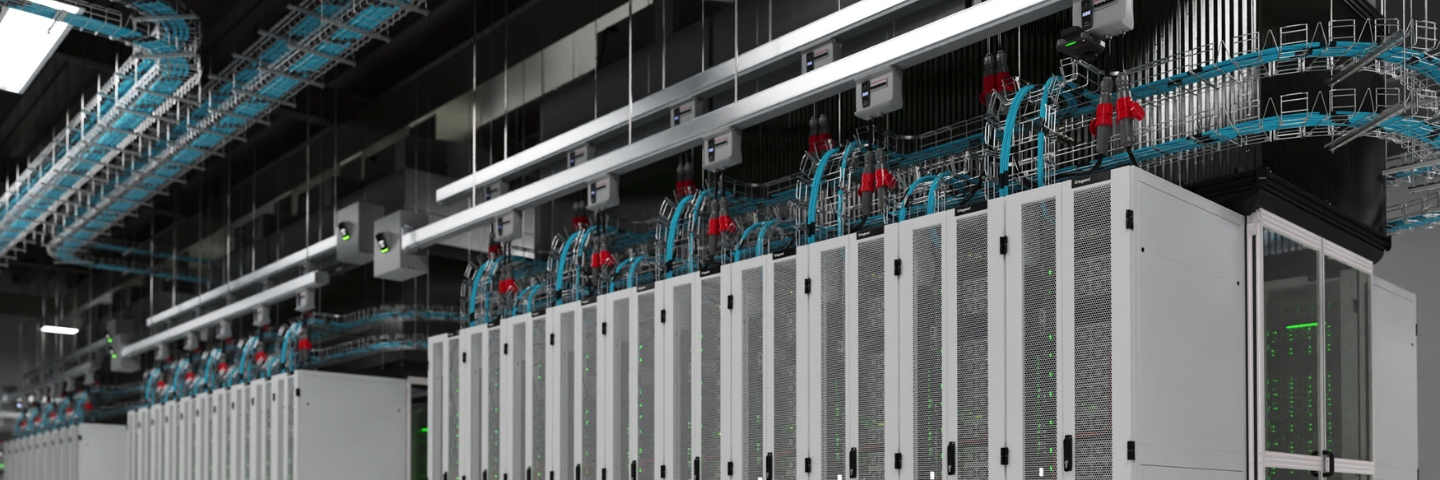The Modern Data Center: How High-Tech Companies Are Transforming Infrastructure

What defines a modern data center in today's technology landscape?
A modern data center represents a fundamental shift from traditional infrastructure models, incorporating advanced technologies and architectural approaches that address the evolving demands of digital business operations. These facilities are designed to support cloud computing, artificial intelligence applications, and edge computing requirements while delivering enhanced performance, security, and cost efficiency.
Unlike conventional data centers that relied on static infrastructure, modern facilities are built with flexibility and scalability at their core. They feature software-defined architecture, automated management systems, and hybrid deployment models that enable organizations to adapt quickly to changing business requirements and technological advances.
The modern data center serves as the foundation for digital transformation initiatives, supporting everything from basic application hosting to complex AI workloads that require specialized compute resources and processing capabilities.
How are high-tech companies revolutionizing data center design and operation?
Leading technology companies are driving innovation in data center design through advanced automation, artificial intelligence integration, and sustainable operational practices. These organizations are implementing cutting-edge solutions that improve efficiency while reducing environmental impact and operational costs.
Artificial Intelligence and Machine Learning Integration
AI technologies are transforming how modern data centers operate, from predictive maintenance and energy optimization to automated workload management. Companies are deploying machine learning algorithms that can analyze vast amounts of operational data to identify patterns, predict equipment failures, and optimize resource allocation in real-time.
These AI-driven systems continuously monitor infrastructure components, including servers, cooling systems, and power distribution units, to ensure optimal performance and prevent downtime. The automation capabilities delivered by AI reduce the need for manual intervention while improving overall facility efficiency.
Software-Defined Infrastructure
High-tech companies are embracing software-defined approaches that virtualize traditional hardware components, creating more flexible and manageable infrastructure. This strategy allows organizations to rapidly deploy new services, scale resources dynamically, and adapt to changing application requirements without significant hardware investments.
Software-defined storage, networking, and compute resources enable businesses to treat their data center infrastructure as a programmable platform rather than fixed hardware installations. This approach significantly improves operational agility and reduces long-term costs.
Edge Computing Architecture
The rise of edge computing is driving high-tech companies to build distributed data center networks that bring processing closer to end users. These edge facilities are designed to handle latency-sensitive applications and reduce bandwidth requirements for cloud services.
Modern edge data centers feature compact, standardized designs that can be deployed quickly in various environments, from urban locations to remote sites. They incorporate advanced cooling technologies and efficient power systems to operate effectively in diverse conditions.
What role does remote data center management play in modern operations?
Remote data center management has become increasingly critical as organizations operate distributed infrastructure across multiple locations. Modern facilities are designed with comprehensive monitoring and management tools that enable centralized oversight of geographically dispersed resources.
Advanced Monitoring and Analytics
Contemporary data centers incorporate sophisticated monitoring systems that collect real-time data on all infrastructure components. These systems provide detailed insights into performance metrics, energy consumption, and environmental conditions, enabling proactive management and optimization.
Remote monitoring capabilities allow organizations to manage multiple data center locations from centralized operations centers, reducing staffing requirements and improving response times to potential issues. The data collected from these systems drives continuous improvement in facility performance and efficiency.
Automated Operations and Maintenance
Automation technologies in modern data centers extend beyond basic monitoring to include automated remediation of common issues, predictive maintenance scheduling, and dynamic resource allocation. These capabilities reduce operational overhead while improving service reliability.
Remote management systems can automatically adjust cooling settings, redistribute workloads, and initiate backup procedures without human intervention. This level of automation is essential for organizations operating large-scale, distributed data center networks.
How are modern data centers addressing artificial intelligence workload requirements?
The rapid growth of AI applications has created new demands for specialized infrastructure that can support intensive compute workloads and massive data processing requirements. Modern data centers are evolving to accommodate these needs through purpose-built systems and optimized environments.
Specialized Hardware Integration
AI workloads require specialized processors, including graphics processing units (GPUs) and tensor processing units (TPUs), that generate significant heat and consume substantial power. Modern data centers incorporate advanced cooling systems and power distribution infrastructure to support these high-performance components.
The architecture of AI-focused data centers includes high-density server configurations, specialized networking equipment, and storage systems optimized for the rapid data access patterns typical of machine learning applications. These facilities are designed to handle the unique requirements of AI processing while maintaining operational efficiency.
Scalable Processing Infrastructure
Modern data centers supporting AI workloads feature scalable compute clusters that can be rapidly provisioned and reconfigured based on application demands. This flexibility is essential for organizations developing and deploying AI solutions that may require varying levels of processing power at different stages of development.
The infrastructure must support both training and inference workloads, each with distinct requirements for compute power, memory, and storage performance. Modern facilities incorporate flexible resource allocation systems that can adapt to these varying needs.
What security considerations are paramount in modern data center design?
Security remains a critical concern in modern data center design, with facilities incorporating multiple layers of protection to safeguard sensitive data and critical infrastructure. These security measures address both physical and digital threats while maintaining operational efficiency.
Physical Security Enhancements
Modern data centers implement comprehensive physical security systems that include biometric access controls, surveillance systems, and intrusion detection technologies. These facilities are designed with security zones that restrict access to critical areas and provide detailed audit trails of all facility activities.
The physical security infrastructure includes redundant systems and backup procedures to ensure continuous protection even during maintenance or system failures. These measures are essential for maintaining the trust of enterprise customers and meeting regulatory compliance requirements.
Cybersecurity Integration
Digital security measures in modern data centers extend beyond traditional network security to include infrastructure-level protection systems. These facilities incorporate security technologies that monitor and protect the operational systems that control power, cooling, and access management.
Advanced threat detection systems continuously monitor data center operations for signs of compromise or unauthorized activity. These systems integrate with broader organizational security strategies to provide comprehensive protection for both infrastructure and hosted applications.
How do modern data centers support evolving business needs?
Modern data centers are designed to adapt to changing business requirements through flexible architecture, scalable resources, and diverse service delivery models. These facilities enable organizations to respond quickly to market opportunities and technological advances.
Hybrid Cloud Integration
Contemporary data centers support hybrid cloud strategies that combine on-premises infrastructure with public cloud services. This approach allows businesses to optimize costs while maintaining control over sensitive data and applications.
The infrastructure components in modern facilities are designed to integrate seamlessly with cloud platforms, enabling organizations to migrate workloads between environments as needed. This flexibility is crucial for businesses that must balance performance, cost, and compliance requirements.
Service Delivery Models
Modern data centers offer various service delivery models, including infrastructure-as-a-service (IaaS), platform-as-a-service (PaaS), and software-as-a-service (SaaS) options. These models enable organizations to consume data center resources in ways that align with their business strategies and operational preferences.
The ability to scale resources dynamically and pay for only what is used makes modern data centers attractive to businesses of all sizes. This flexibility is particularly valuable for organizations with variable workloads or seasonal demand patterns.
What technologies are driving the evolution of modern data centers?
Several key technologies are shaping the future of modern data center design and operation, from advanced cooling systems and smarter power distribution (busway, tap-off units and intelligent PDUs) to next-generation networking solutions. These innovations are improving efficiency, reducing costs, and enabling new types of applications and services.
Advanced Cooling Technologies
Modern data centers incorporate innovative cooling solutions that improve energy efficiency while supporting high-density computing environments. These systems include liquid cooling, immersion cooling, and advanced air handling technologies that can manage the heat generated by modern processors and AI hardware.
The cooling infrastructure is increasingly integrated with facility monitoring systems that can adjust cooling parameters automatically based on real-time conditions. This automation helps optimize energy consumption while maintaining optimal operating temperatures for sensitive equipment.
Smarter Power Distribution
Modern data centers are rethinking how power is delivered to high-density environments. Busway and tap-off systems provide flexible, scalable distribution that can adapt to shifting loads and cabinet layouts. Intelligent rack PDUs add outlet-level monitoring and control, helping operators track energy use, prevent overloads, and integrate with DCIM platforms. Together, these solutions improve efficiency, reduce downtime risk, and simplify future growth.
Next-Generation Networking
High-speed networking technologies are essential for modern data center operations, supporting everything from basic connectivity to advanced AI applications that require massive data throughput. These facilities incorporate advanced switching and routing equipment that can handle the increasing demands of digital applications.
The networking infrastructure includes redundant connections, advanced traffic management capabilities, and integration with software-defined networking systems that enable dynamic resource allocation and optimization.
How does Legrand support modern data center infrastructure requirements?
Legrand's comprehensive portfolio of data center solutions addresses the critical infrastructure needs of modern facilities, from resilient power distribution and advanced cooling systems to physical security and intelligent monitoring. Our products are designed to meet the demanding requirements of contemporary data center environments while supporting future growth and technological evolution.
Power and Distribution Solutions
Legrand's power distribution components provide reliable electricity delivery to modern data center equipment, including specialized solutions for high-density computing environments and AI workloads. Our power distribution units (PDUs) and monitoring systems help organizations manage energy consumption while ensuring consistent power delivery to critical systems.
Cooling Solutions
Legrand delivers advanced cooling technologies to support high-density and sustainable data center environments. Our portfolio includes airflow containment, in-row active cooling, rear-door heat exchangers, and immersion systems that optimise thermal performance while reducing energy and water consumption. These solutions integrate seamlessly with monitoring platforms to ensure efficient, resilient operation as workloads evolve.
Infrastructure Management Tools
Our comprehensive monitoring and management solutions enable organizations to optimize their data center operations through real-time visibility into infrastructure performance. These tools support remote management capabilities while providing the detailed analytics needed to improve efficiency and reduce operational costs.
Physical Infrastructure Components
Legrand's racks, cable management systems, and containment solutions are designed to support the evolving needs of modern data centers. These products accommodate high-density configurations while maintaining proper airflow and accessibility for maintenance and upgrades.
Security and Access Control
Our security solutions provide comprehensive protection for modern data center facilities, including access control systems, surveillance technologies, and environmental monitoring capabilities. These products integrate with broader facility management systems to provide holistic security and operational oversight.
The modern data center represents the convergence of advanced technologies, innovative design approaches, and evolving business requirements. As organizations continue to embrace digital transformation and AI applications, the importance of flexible, efficient, and secure data center infrastructure will only grow. Legrand's comprehensive solutions portfolio is designed to support these evolving needs, helping organizations build and manage the modern data center infrastructure that drives business success in today's digital economy.
























 Canada
Canada
 Latin America (English)
Latin America (English)
 Latin America (Espanol)
Latin America (Espanol)
 USA
USA
 China
China
 India
India
 Japan
Japan
 Republic of Korea
Republic of Korea
 South East Asia (English)
South East Asia (English)
 Austria
Austria
 Belgium
Belgium
 France
France
 Germany
Germany
 Italy
Italy
 Netherlands
Netherlands
 Spain
Spain
 Switzerland
Switzerland
 Turkey
Turkey
 UK
UK
 Africa (english)
Africa (english)
 Africa (français)
Africa (français)
 Middle East (english)
Middle East (english)
 Australia
Australia
 New Zealand
New Zealand